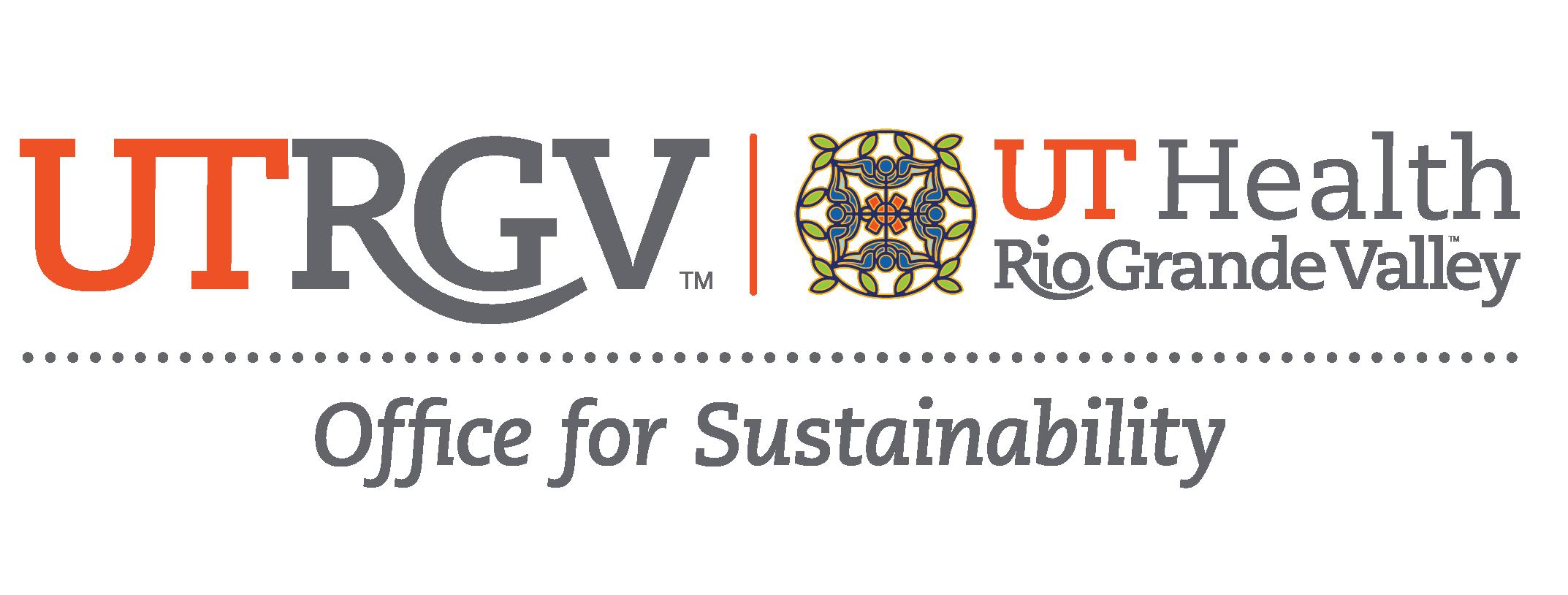
PROPOSAL FOR SUSTAINING A HEALTHY AND VIBRANT CAMPUS COMMUNITY FOREST





PROPOSAL FOR SUSTAINING A HEALTHY AND VIBRANT CAMPUS COMMUNITY FOREST



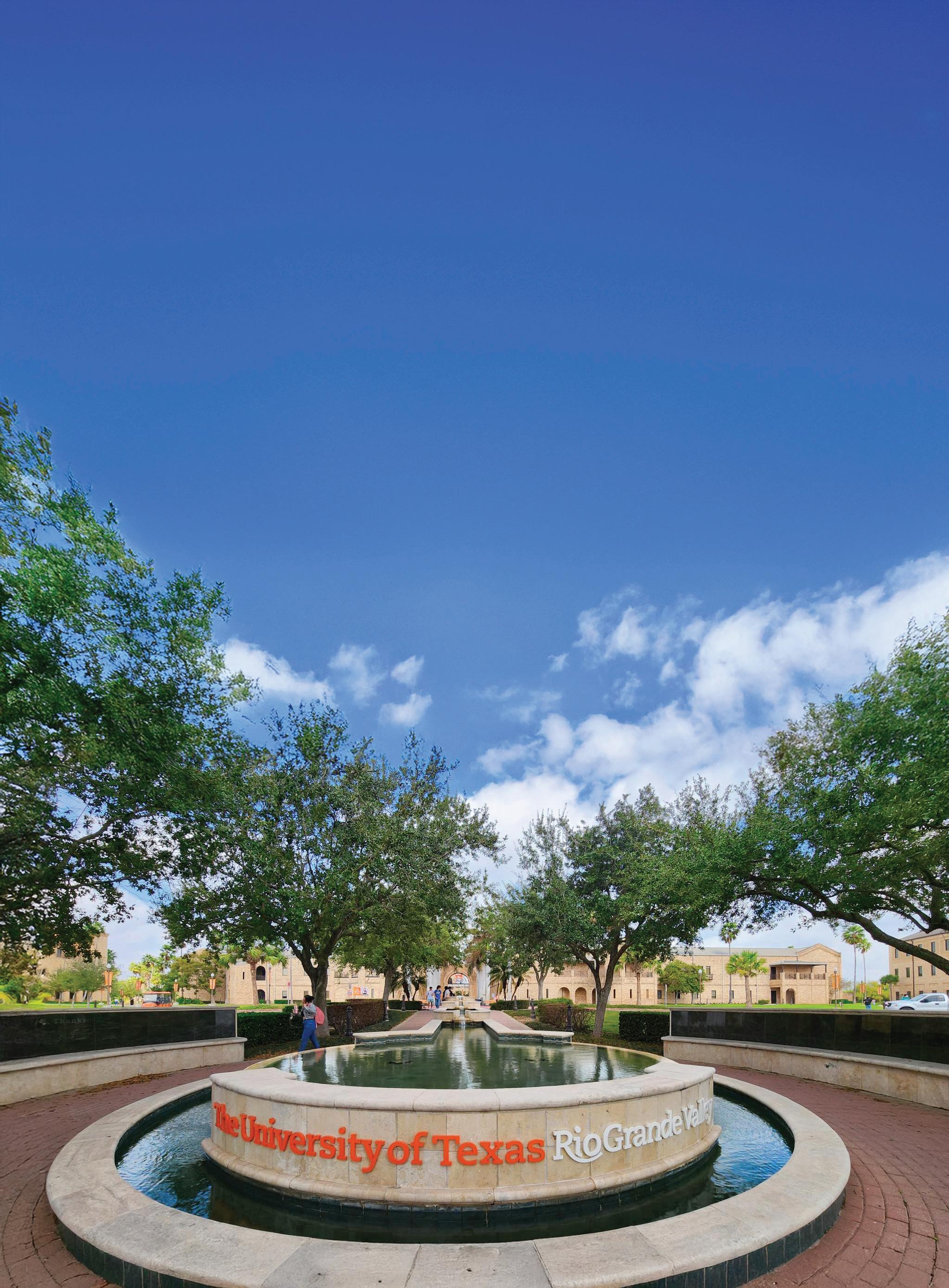


The University of Texas Rio Grande Valley (UTRGV) is proud to present the 2024 Tree Campus Report, highlighting our unwavering commitment to fostering a sustainable and vibrant campus environment. Since earning our first Tree Campus USA designation from the Arbor Day Foundation in 2014, we have consistently demonstrated dedication to urban forest management and sustainability.
Our campuses, particularly in Edinburg and Brownsville, are home to nearly 2,000 trees, providing shade, enhancing air quality, and contributing to the overall well-being of our university community. The Edinburg campus alone boasts an urban forest valued at over $5 million, reflecting the significant ecological and economic benefits these trees offer.

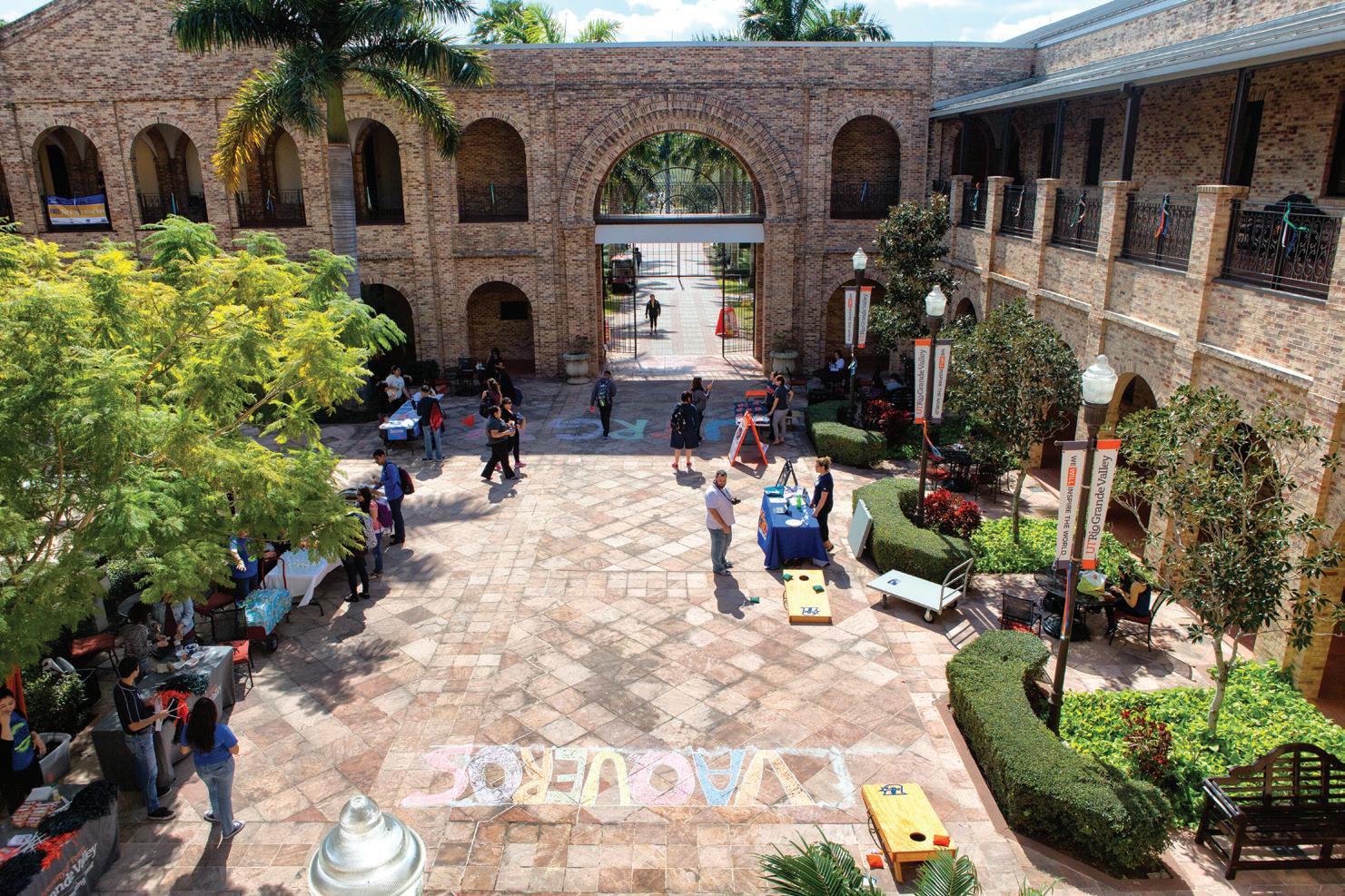
In 2023, we celebrated our 10th consecutive year of recognition as a Tree Campus Higher Education institution, a testament to our ongoing efforts in tree preservation, education, and community engagement.
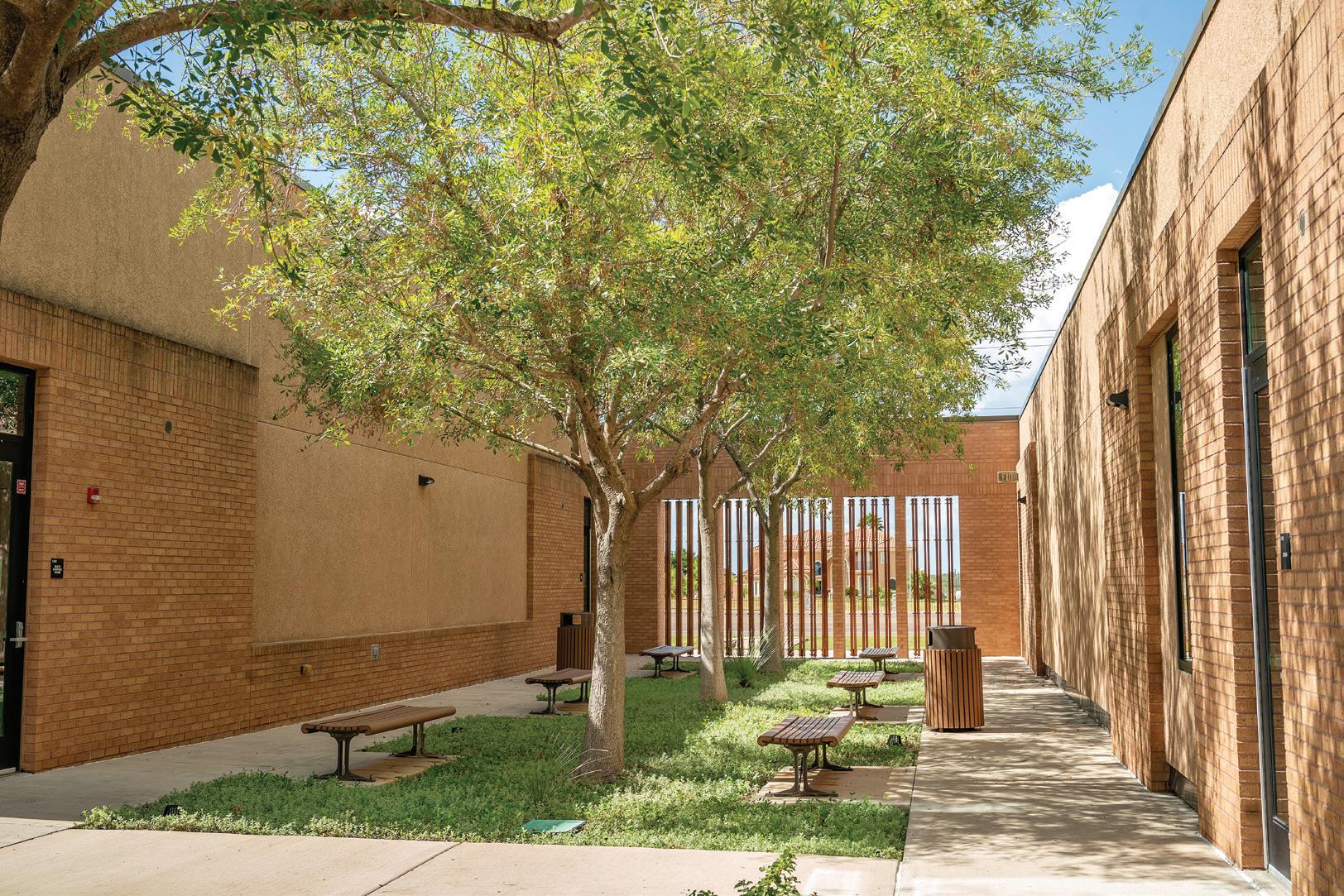

Our success is driven by collaborative initiatives involving students, faculty, staff, and community partners. Notably, our Community Forestry course engages students in hands-on tree inventory projects, providing practical experience in urban forestry and contributing valuable data for campus tree management.
As we look ahead, UTRGV remains steadfast in our mission to enhance and expand our campus forests. We recognize the vital role trees play in creating a sustainable and welcoming environment, and we are committed to continuing our efforts in tree care, education, and community involvement.

The University of Texas Rio Grande Valley (UTRGV) Campus Tree Advisory Committee (CTAC) is dedicated to the preservation and enhancement of the UTRGV campus tree population by providing guidance for future planning, reviewing the campus master tree plan, educating the campus community on the value of trees.
The CTAC provides recommendations concerning tree removal and planting, and establishing goals for increasing the number of trees on campus. CTAC gathers quarterly to discuss these initiatives and address any related emerging issues to support a growing, greener campus for all.
Established in 2013
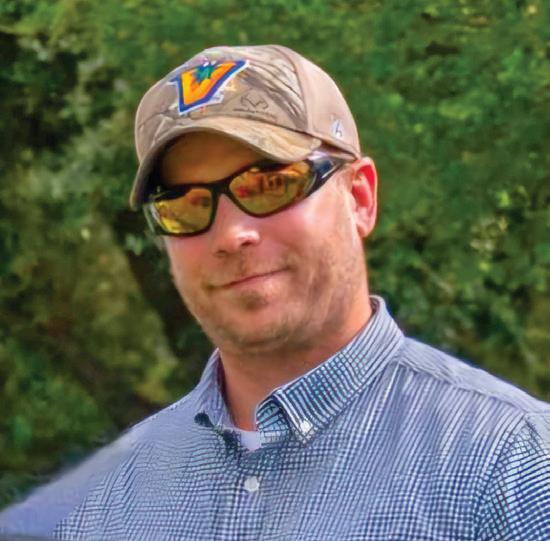
Nick Kennedy Grounds Supervisor

Jonathan Leal Student Representative
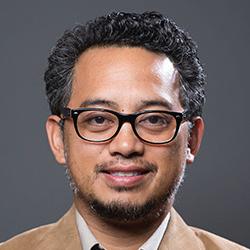
Dr. Alexis Racelis Faculty Advisor

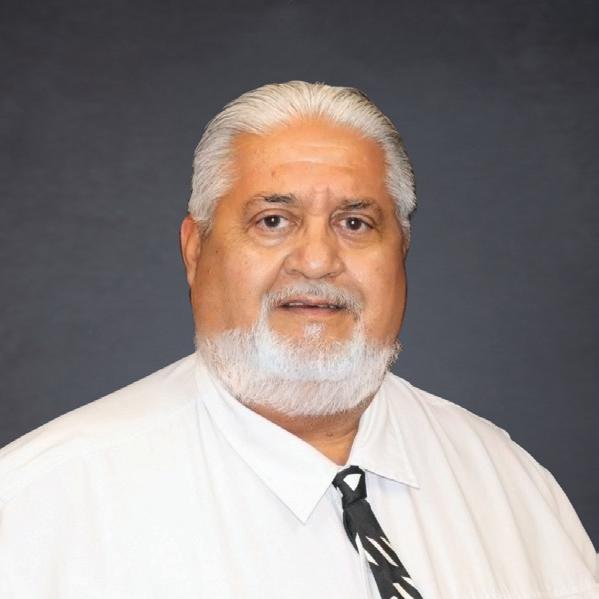
Abraham Hernandez Assistant VP for Campus Facilities Operation
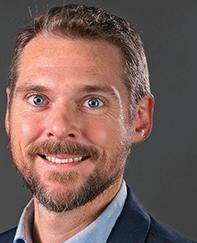
Dr. Christopher Gabler Faculty Advisor

Bill Green RGV Community Ecologist
Program Coordinator
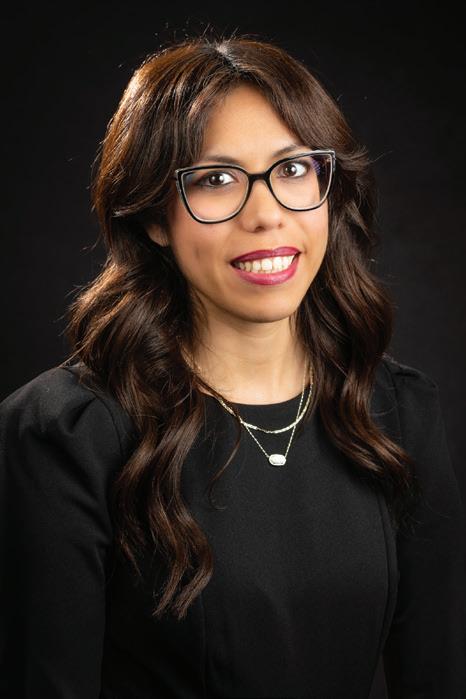


Student Representative
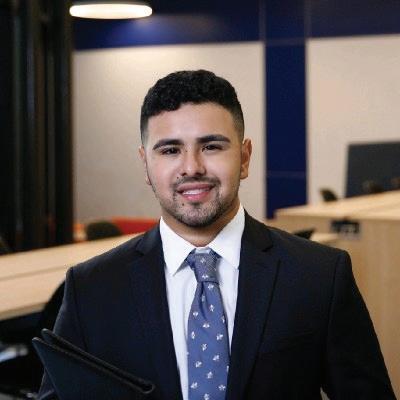
Interm Director for Sustainability
The CTAC is composed of a diverse group of stakeholders, including UTRGV faculty, staff, students, and both local and state foresters.

Valley (UTRGV) reaffirms its dedication to environmental sustainability and the cultivation of a vibrant, healthy campus through the implementation of its updated 2025 Tree Care Plan.
The Facilities Planning and Operations Department remains the primary authority for managing tree care across campus. These initiatives reinforce our commitment to fostering a healthy and sustainable environment.
UTRGV has expanded its educational efforts by offering interactive workshops and seminars led by experts. These events not only train staff but also inspire students to participate in projects such as digital tree inventories and community service activities.

Increase tree diversity on campus.
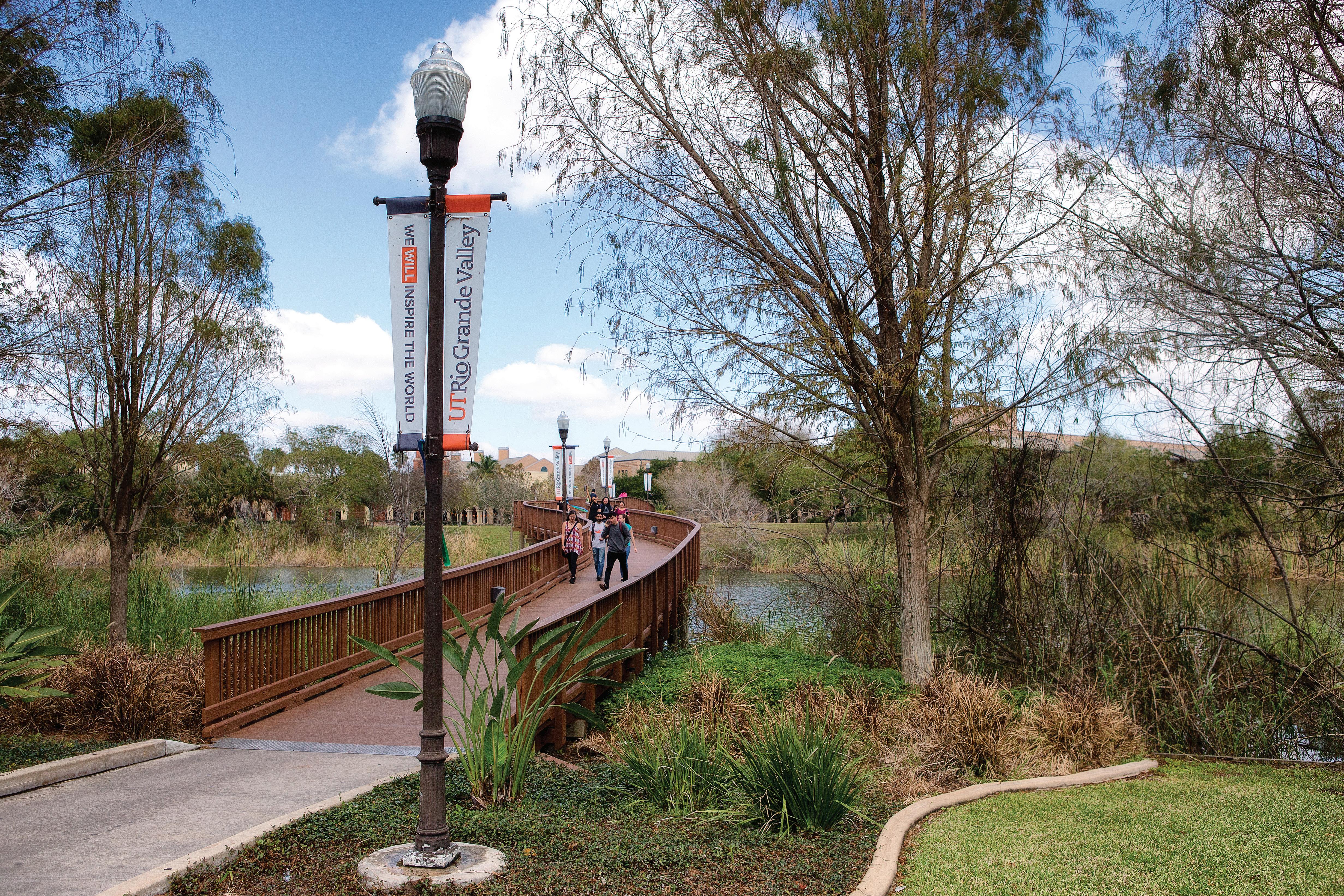
Achieve a 20% increase in total campus tree canopy.


Reduce environmental impact through low-maintenance practices.

Implement a student volunteer program.
Our approach for 2025 includes the integration of advanced technologies such as drones for canopy mapping and health monitoring sensors to evaluate the condition of trees in real time. These innovations enable faster and more efficient responses to threats like diseases or extreme weather conditions.
UTRGV recognizes that community involvement is essential to the success of this plan. In partnership with local organizations such as the City of Brownsville Urban Forestry and the Texas A&M Forest Service, we have launched initiatives including mass planting campaigns and the creation of green recreational spaces.
Through our Tree Care Plan, we are planting deep roots not only in the soil but also in the minds of every member of our community. Together, we are cultivating a campus that reflects our commitment to the environment and prepares a legacy for future generations. Join us in making UTRGV a shining example of sustainability in the Rio Grande Valley and beyond!

To earn the Tree Campus USA designation, a college must administer funds for its annual tree program. Including the demonstration of an established annual work plan with designated expenses. Although not required but recommended that campuses aim for an annual spending of $3 per full-time student, the national average for recognized Tree Campus USA institutions is currently between $9 and $11. Expenditures can occur both on and off campus. For example, an urban campus with limited space might join in collaborating with nearby elementary schools to plant and maintain trees.


$ 103,236
$ 20,700



$ 291,767 $ 7,500 Brownsville $ 13,700 Edinburg
Total

THE FY24 AVERAGE STUDENT ENROLLMENT OF 34,343. THE RECOMMENDED $3 STUDENT EXPENDITURE EQUALS $103,029. WITH THE ABOVE DEDICATED EXPENDITURES, UTRGV SURPASSED THE RECOMMENDED YEARLY EXPENDITURES FOR PARTICIPATION IN TREE CAMPUS USA
The UTRGV Arbor Day observance was a celebration of community, education, and environmental stewardship, all symbolized by the planting of a single Cedar Elm sapling at the Child Development Center. This seemingly simple act brought together a diverse group of partners, each contributing to a greater purpose.
Under a bright November sky, the children, armed with tiny shovels and big smiles, took turns adding soil to the tree's new home. Their enthusiasm was contagious, reflecting the shared excitement for this annual tradition. This event was a carefully and thoughtfully orchestrated effort supported by various organizations.
The City of Edinburg, recognizing the importance of native species, officially endorsed the Cedar Elm, strengthening the bond between the university and the local community.
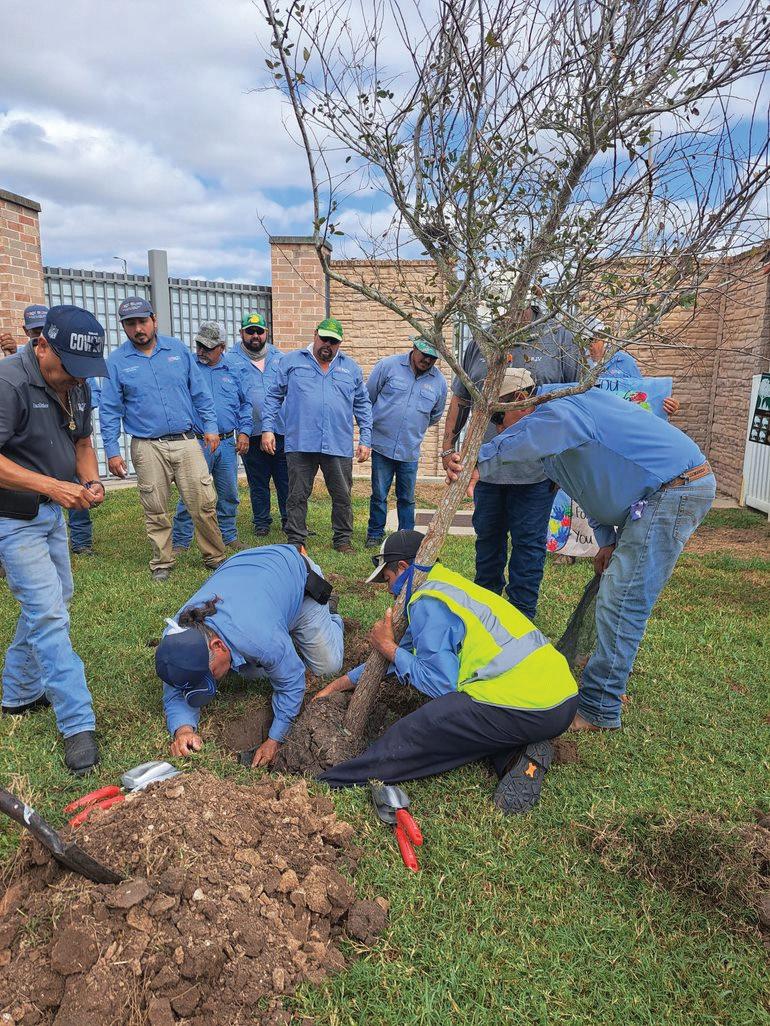
Within UTRGV, the Office for Sustainability led the charge, highlighting the university's commitment to environmental responsibility. Campus Facilities ensured a smooth and successful event, while also guaranteeing the long-term care of the tree.
Dr. Racelis and his Urban Forestry students brought an academic perspective, guiding the planting process and educating the children about the vital role trees play in our ecosystem.
And let's not forget the UTRGV Grounds Crew and Maintenance staff, whose expertise and dedication ensured the Cedar Elm was planted correctly and will continue to thrive for years to come.
This collaborative effort, encompassing local government, university departments, faculty, staff, and students, demonstrated the power of partnership in creating a sustainable future.
The Arbor Day observance served as a shining example of how a single tree can symbolize a shared commitment to environmental stewardship and community engagement.
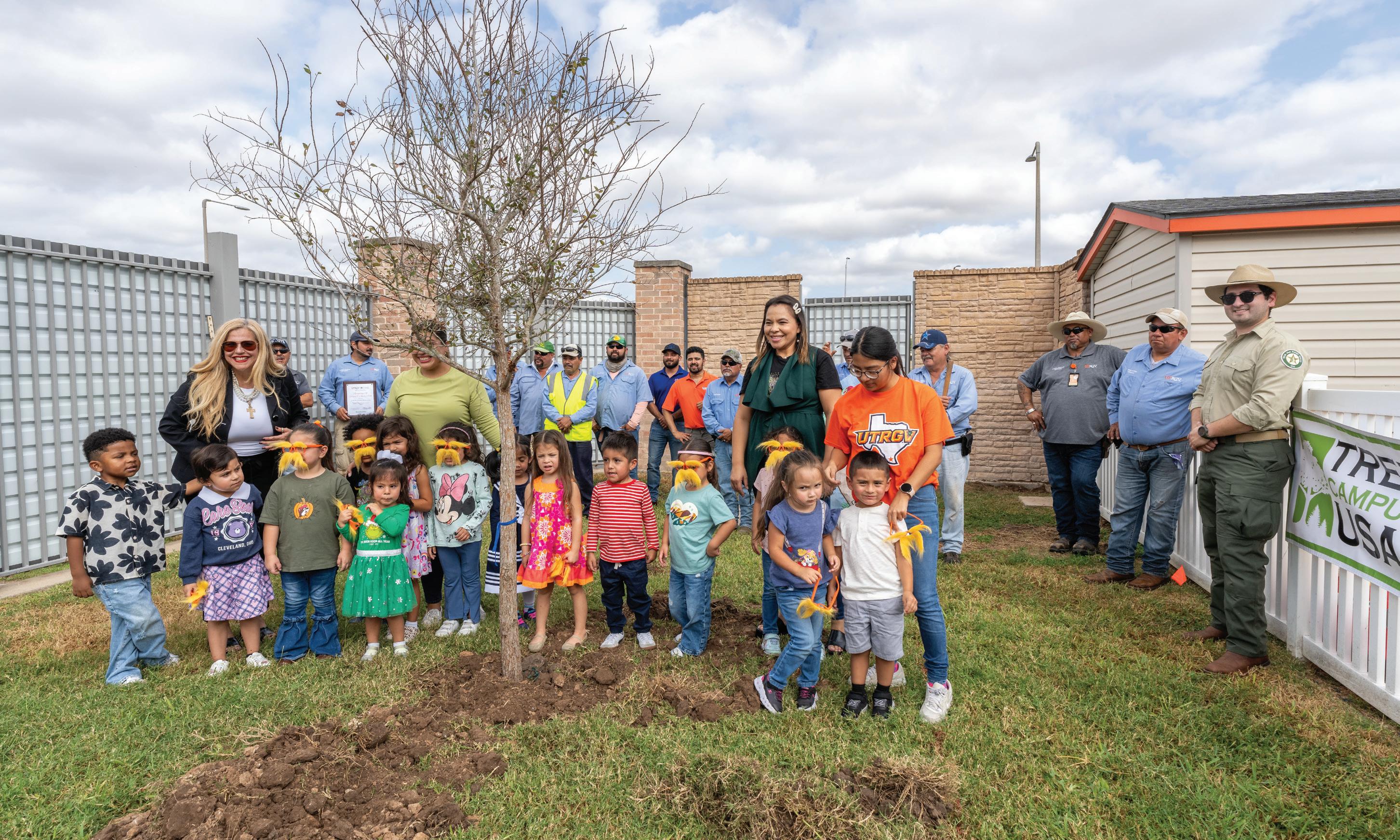




Service Learning PRoject 1
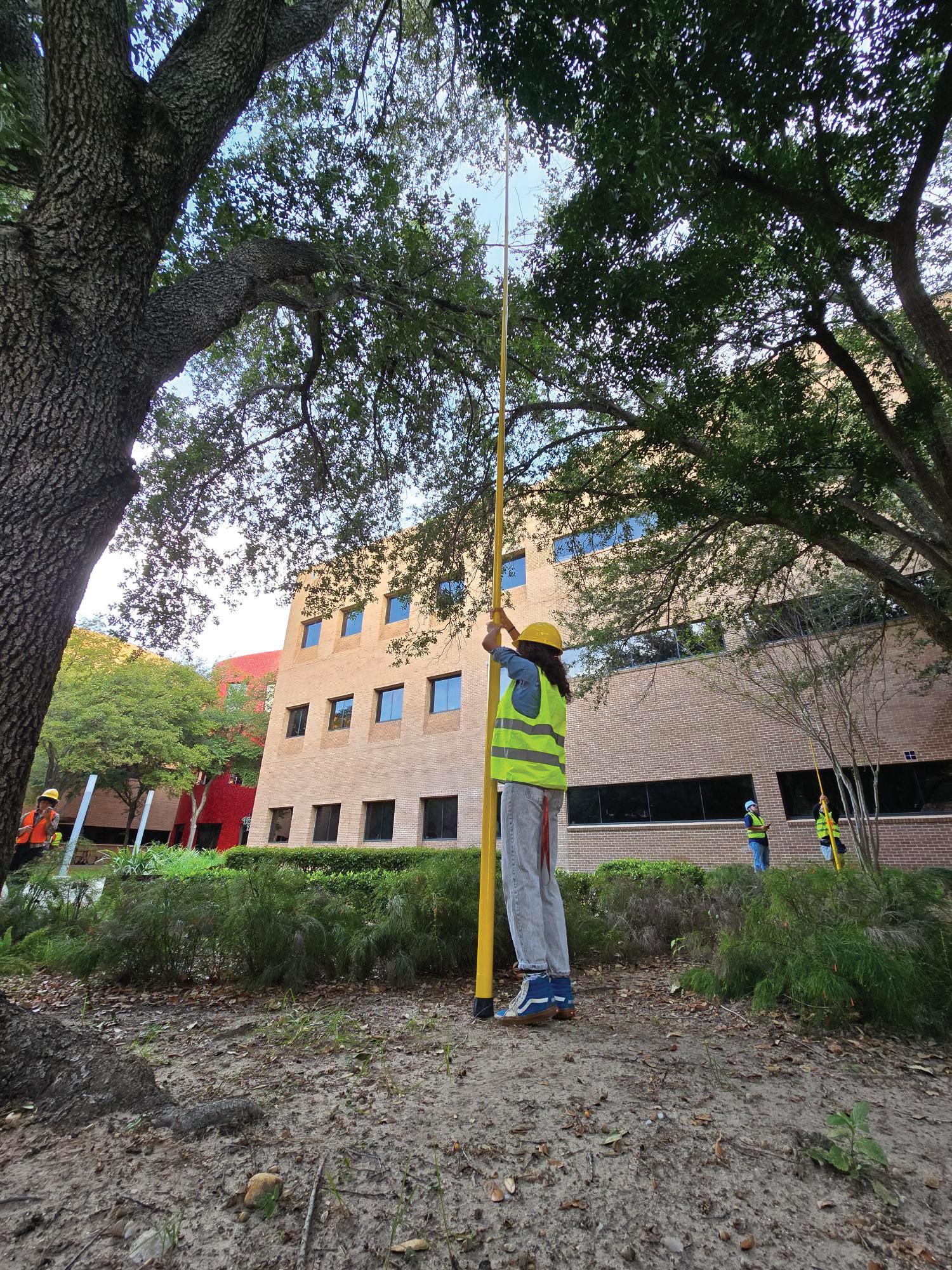
UTRGV's Community Forestry course, led by Dr. Alexis Racelis and in partnership with the Texas Forest Service, is turning students into passionate urban tree advocates. This unique course combines classroom learning with hands-on experiences, empowering students to make a real-world impact. A highlight of the course is the campus-wide tree inventory conducted every five years.
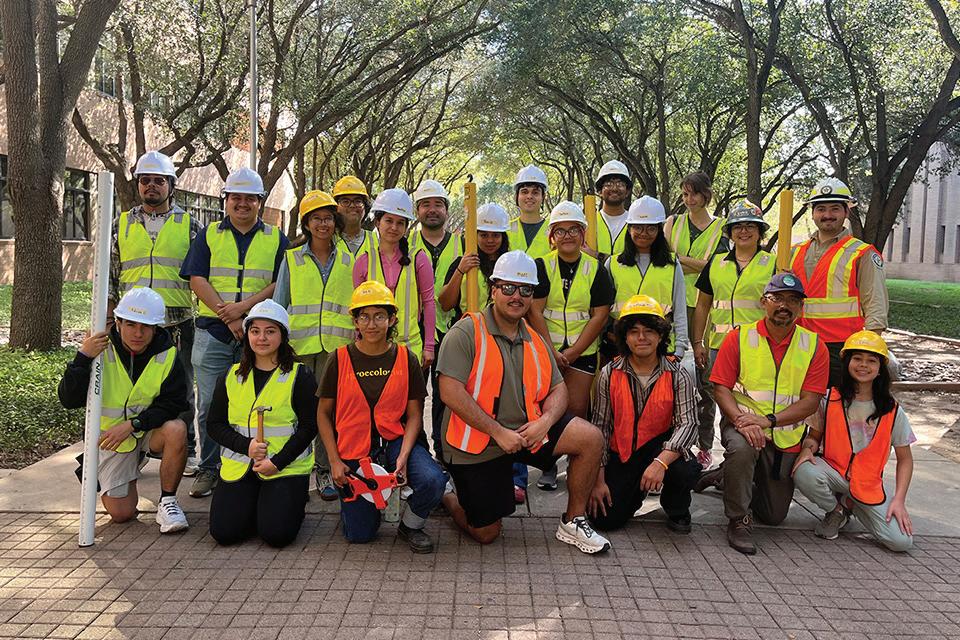
Students, donned in hard hats and neon vests, meticulously document the species, size, and health of every tree on campus, providing valuable data for future tree care. Beyond campus, students extend their efforts into the community, assessing over 1,200 trees throughout the Rio Grande Valley. They use professional tools and cutting-edge technology, like the U.S. Forest Service Learning I-Tree program, to collect and analyze urban tree data.
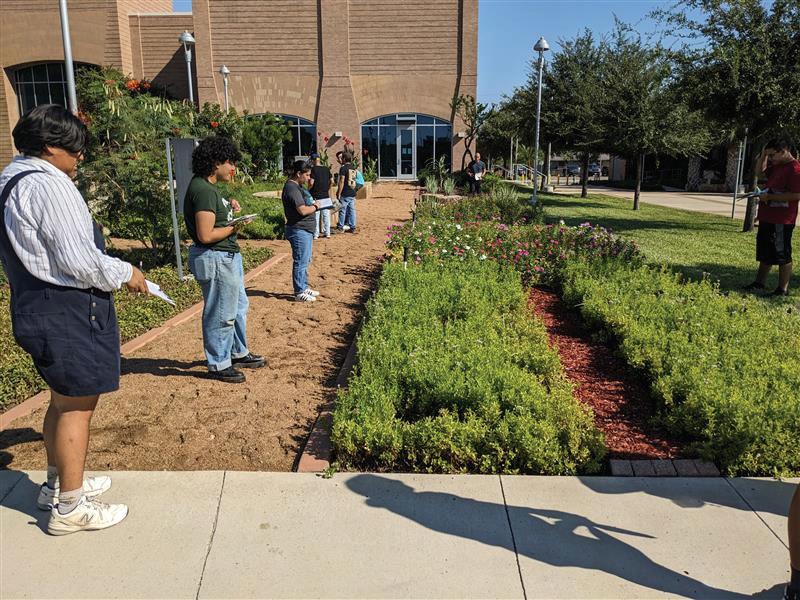

The Ecology Ecosystem service learning project is an exciting exploration of the vital connection between ecosystem ecology, human interaction, and sustainability, with a focus on trees.
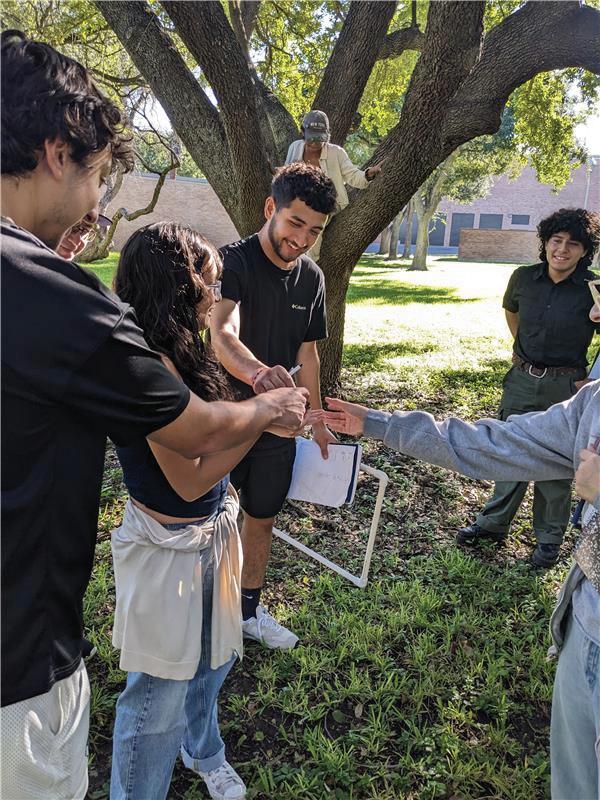
Students engaged in hands-on lab work, measuring plant diversity, seed predation, and pollinator activity. They also collaborated on research projects, presenting findings on topics like the impact of shade on flower availability, seed predation on oak trees, and campus fungi diversity. This project deepened students' understanding of trees' ecological roles and their influence on sustainability, fostering a stronger connection to their environment.
On June 22, 2024, UTRGV hosted the AgDiscovery Summer Youth Program, a thrilling 12-day adventure for 12 high school students. Funded by the USDA and organized by UTRGV’s School of Earth, Environmental, and Marine Sciences, this program ignited interest in agriculture, sustainable food systems, and natural resources.

Students engaged in hands-on learning and tours of local farms, ecological sites, and UTRGV campuses. Guided by esteemed faculty, they explored plant science, wildlife management, and sustainability, gaining insights into agriculture's critical role. The program connected students with experts and peers, fostering a deeper understanding of agriculture’s impact on food security and environmental sustainability. By blending education with real-world applications.
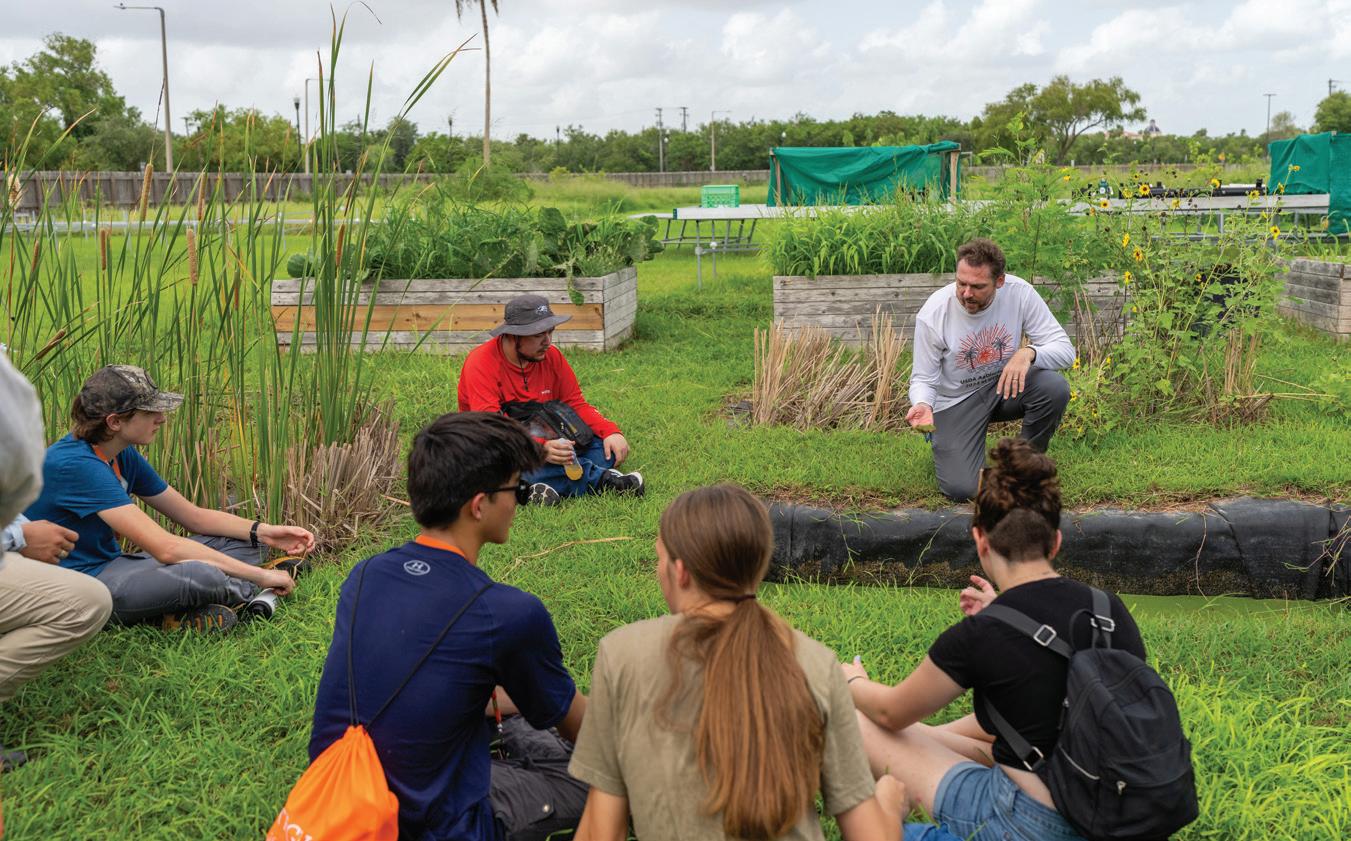
The AgDiscovery Summer Youth Program highlights UTRGV’s commitment to cultivating future leaders in agricultural and environmental sciences. This program exemplifies how UTRGV is shaping a sustainable future, one student at a time.
Service Learning PRoject 4

The University of Texas Rio Grande Valley (UTRGV) has introduced a new Mobile Learning Lab through its Center for Sustainable Agriculture and Rural Advancement (SARA).
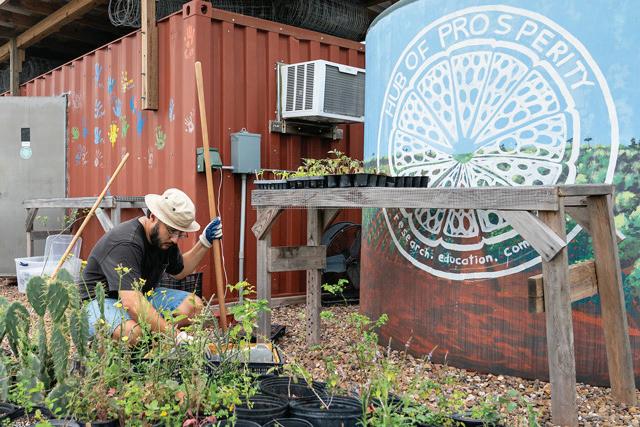
UTRGV students were instrumental in designing the lab and will continue to engage in community training and professional development.

This innovative lab is designed to educate local and rural farmers in the Rio Grande Valley on sustainability and agriculture. It offers classes on water conservation, irrigation practices, starting a garden, and soil testing. The lab collaborates with local organizations like the Sentli Center for Regenerative Agriculture and the Brownsville Wellness Coalition, ensuring a community-focused approach.
The project is funded by a cooperative agreement with the Natural Resources Conservation Service (NRCS) and supported by donations from the Rio Texas Methodist Church. This initiative aims to enhance food self-reliance and sustainability education in the region.

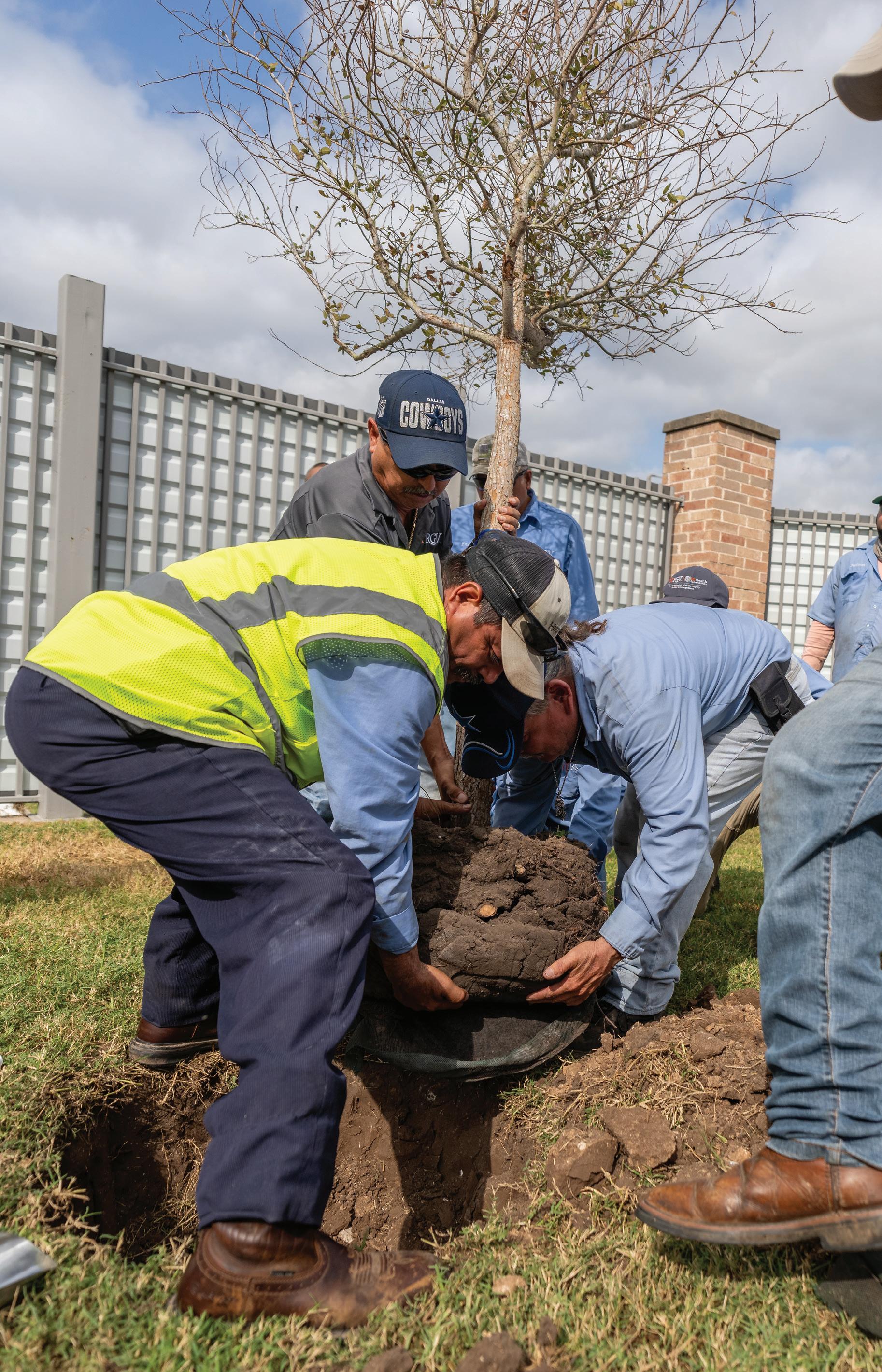
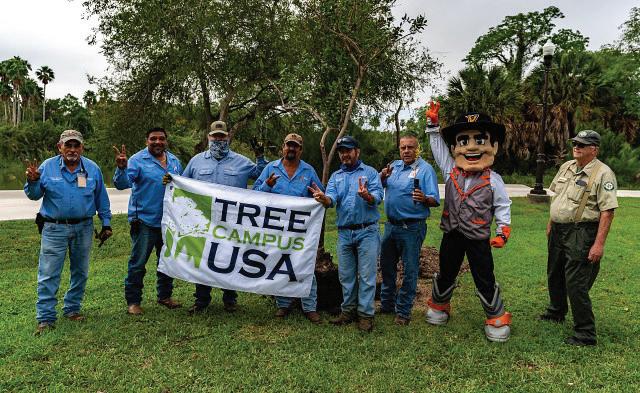


UTRGV extends its gratitude to the Grounds Crew and Maintenance staff for their continuous dedication to maintaining the beauty and health of our campus trees. The Grounds Crew's expertise is evident in their careful selection of tree locations, considering factors such as sunlight, soil conditions, and proximity to buildings to ensure the long-term health and growth of our trees. Going forward, they also provide ongoing care, including watering, fertilization, and pruning as needed.
The Maintenance staff provides invaluable support by assisting with event logistics and ensuring the necessary tools and equipment are available. Their attention to safety ensures a secure environment for everyone.
Furthermore, their ongoing maintenance of the campus irrigation system and other infrastructure is crucial for the trees' continued well-being. The collaborative efforts of the Grounds Crew and Maintenance staff exemplify UTRGV's commitment to environmental stewardship and sustainability. Their work ensures that the trees will flourish, providing a lasting legacy for future generations to enjoy.
UTRGV would like to recognize the members of the Grounds Crew and Maintenance staff who participate in the tree planting events. Their contributions, such as soil preparation, planting technique, and ongoing care, deserve special mention. The planting of trees symbolizes UTRGV's commitment to a sustainable future. The long-term positive impact of this initiative includes providing shade, improving air quality, and enhancing the beauty of the campus. These initiatives align with UTRGV's broader sustainability goals.
UTRGV is committed to tree planting, preservation, and community engagement in urban forestry. The expertise and dedication of the Grounds Crew and Maintenance staff are invaluable to UTRGV's efforts in creating a greener and more sustainable campus.


